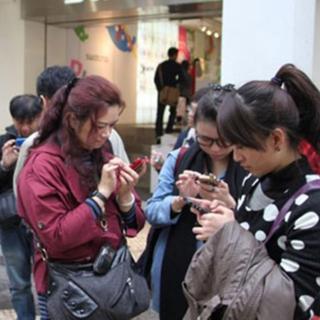
介绍:
A man in his twenties was killed by a car when he was riding a bicycle in Beijing on the night on April 4th. Witnesses told the police that the car escaped after the crash. Deng was the driver. According to him, he was sending a wechat message via his mobile phone at that moment.
"I heard a sound of 'Bang' then, and found that the right wing mirror had been folded but not broken. I thought I just scratched someone's car. I didn't think too much and left immediately."
Deng, the criminal suspect is now under arrest approved by Changping District Procuratorate. He admitted that he found the right part of front windshield was broken. Then he took a photo of the glass and posted it on his timeline, typing: scared. But committed a hit-and-run until being arrested.
Chen Lei is a procurator at Changping District Procuratorate.
"At that time, he paid all his attention on his mobile phone so that he didn't realize that his car had been deviated from the original direction. Then the unavoidable result was caused. "
Nowadays, there are nocializers and phubbers everywhere in the streets around the globe. Among them, drivers on the roads can be considered as the most dangerous group.
Yang Zhi is an instructor at Police Acadamy.
"When you are driving on the city roads, if you look down on your mobile phone screen, your attention is diverted immediately. If you face an emergency, the braking distance multiplies."
Yang did an experiment to show how Nocializing influences safe driving.
He supposed that it would take 2 seconds for a driver to take a glance at the mobile phone and then turn to watch the road. He calls the distance a car has passed during the 2 seconds as "blind driving".
The experiment results show that when a car is at 40 kilometers per hours, the blind distance is more than 20 meters; when the car speed is 80 kilometers per hour, the blind distance becomes over 40 meters; as the car is at 120 kilometers per hour, the blind distance reaches beyond 120 meters long.
Yang Zhi explains, if we take the response time that a driver realizes the dangerous condition into account, the blind driving distance is much longer than the experiment results.
Compared with the nocializing drivers, walking phubbers threaten less to others but put their own lives in danger.
On May 13th, in Zhuhai, south China's Guangdong province, a woman who was talking through her mobile phone as she walked across the street, was struck down by a truck, and then was killed when run over by another truck.
Before the dawn of July 14th last year, in Kunming, southwest China's Yunnan province, a man named Xiao was hurt by a car when he was playing on his mobile phone, without noticing that he had walked into the middle of the road.
Last year in a subway station in Shanghai, a passenger stepped off the platform while playing mobile phone. According to the surveillance video, he maintained eye contact with the screen as he was falling down.
Leng Song, secretary-general of the media research center at Chinese Academy of Social Sciences, explains:
"When we overuse any kind of new media or equipment, it hurts those around us."
Leng elaborates, these accidents are visible lessons, but there are also some hidden dangers caused by social alienation that are even more worrisome.
"It causes more indifference among people. For example, if the timelines of social media and communications via wechat can replace the real society, we don't have to see each other anymore. This causes a great deal of people to have communication barriers that they cannot communicate their feelings face to face."
Nocializing or phubbing has become a common concern around the world, there have been many public advertisements to remind us, do not use mobile phone in the streets, cafeteria or even office, treasure the lives of ourselves and others; respect to the scenery, food and music, as well as the work we are in.
大家还在听

